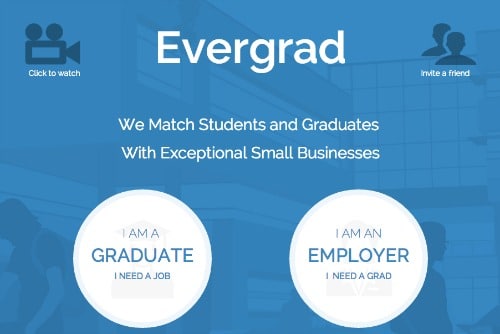
Many companies look to top university exports to fill their vacant positions but, with graduates reporting displeasure at first time roles, is this the right way to recruit the best person for the job? We take a look at why graduates are finding it difficult to settle and a new social networking platform aimed at directly matching the employer with the best candidate for the position.
Unhappy Graduates
People leaving university full of anticipation and excitement at entering the world of work may not be achieving their potential as quickly as they’d like. A huge proportion of graduates say they regret taking on jobs straight after leaving education, citing a need to bump up their CV as one of the main reasons. A recent report from CEB, titled Driving New Success Strategies in Graduate Recruitment, published research stating that one in five graduates plan to leave their first jobs after just a year due to disillusionment and a desire to find a position which better reflects the career path they wish to stick to.
This disillusionment is painfully obvious as more and more students leave full-time education only to find it a struggle to maintain a career they believe is truly beneficial to them. Getting into employment immediately after graduating is important for many students, who are often left in debt due to monumental tuition loans. Graduates often discover that the lack of first-hand experience can leave them faltering regarding their CVs so, in order to bump up experience, they may take jobs they are not passionate about in order to get a foot in the door.
Unhappy Employers
The disillusionment also works both ways, as employers now find it increasingly difficult to maintain a full team of staff who are all passionate and driven towards the goals of the company, as well as their own personal aims. Hiring graduates based on their degree and assuming they will feel lucky to have been given the job is dangerous as it could inspire complacency amongst management, who may believe they do not need to engage first-time workers.
The cost of hiring new employees after another leaves can be astronomical. Not only are employers forced to pay wages to staff who have no intention of staying past the first year, but they are may also lose out via advertising and agency fees after the employee has left. Also, the constant turnaround of staff means none reach their optimum level of performance, which hurts the productivity of the business and can lead to low morale among permanent team members.
The Solution
Businesses must change the way they approach job advertising in order to draw in candidates who are excited by the job. The way in which job advertising has changed in recent years – with the introduction of social networking into many facets of our lives – means that companies who fail to adapt and engage candidates will only have their adverts seen by less innovative and engaging people.
However, there is a way for graduates to take matters into their own hands with a new social network that is aimed at bringing together graduates and SMEs directly. The new network, called Evergrad, is helping both small businesses, who may not be able to afford agency fees or in-house recruitment programs, and graduates themselves. It works in a similar way to dating app Tinder; companies and candidates set up profiles and they are able to ‘like’ one another in order to continue and give contact information. Whereas graduates can describe the process of job hunting as monotonous and boring, Evergrad takes into account the importance of social networking with online recruitment and how best to use it in a professional sense. Widely available in September, its creators have already drawn in over 100 businesses and 1,000 graduates, with an endless scope for success.
There is a sense of hope being quashed among university leavers these days as they join a recovering economy. Trying to get a foot in the door without any real experience is tough and it does make sense for graduates to find stop-gap jobs while they seach for something more exciting to them, however the employers are not helping themselves by not doing their best to engage the people they really need for their position. Perhaps, with innovations such as Evergrad making waves in the recruitment world, there will be new hope for uni leavers to find the jobs of their dreams.








